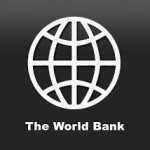ICDI DEVELOPMENT SERIES RESEARCH REPORT
In our October 2013 DEVELOPMENT SERIES RESEARCH, ICDI examines the development intervention works and programmes of the World Bank in Africa, particularly its good governance initiatives in Democratic Republic of Congo (DRC) in a first-of-its-kind self-funded intensive and ground-breaking research.
Executive Summary
Globally, it is often argued that sound public-sector and government spending help determine economic development and social-equity, especially for the poor and disadvantaged groups, such as women, children and the elderly. This pre-supposes that a well-functioning civil society that delivers quality public services consistent with citizen preferences, and that fosters private market-led growth while managing fiscal resources prudently is considered critical to poverty-alleviation and the achievement of MDGs. Over-the-years, the World Bank has strived consistently towards this endeavor. The challenge has always been as to whether its policies and programmes are so effective in the countries it is involved with in Africa, numbering the vast majority. The question often asked is, why is good governance and development still lacking in these countries and their communities? This ICDI research work examines World Bank’s capital policies and its use of technology in improving good governance in South-Kivu, Democratic Republic of Congo (DRC) as a case study, and concludes with some reflections, comparative analysis, recommendations and lessons of how stakeholders sees and influences field realities in determining the actual behaviour changes in governance of community.

